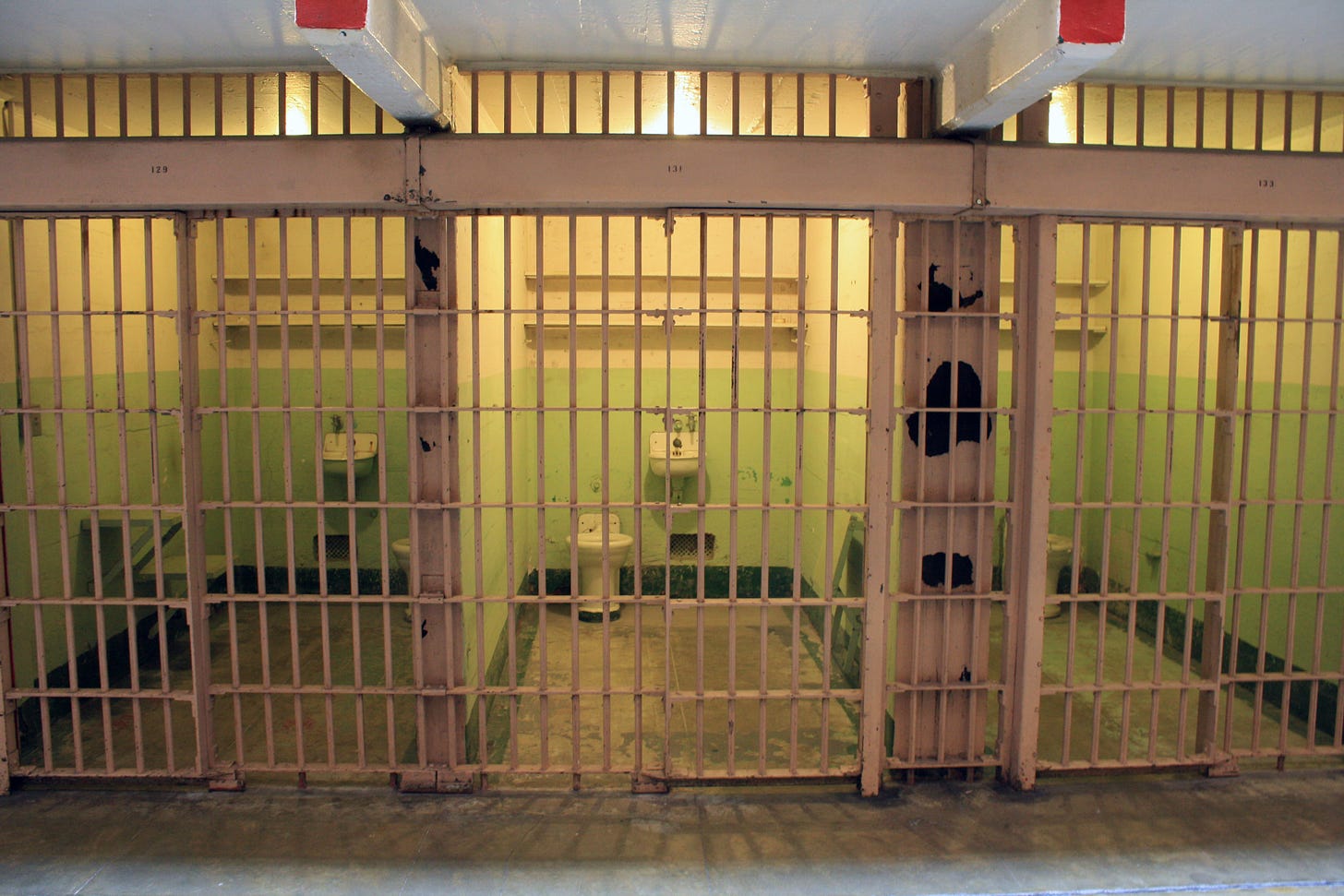Prisons should be a last resort, not a first resort
Our high rates of imprisonment do not help victims, reform criminals, or prevent crime.

Abolition. When we hear it, we typically think of the likes of John Brown and President Abraham Lincoln. But the word refers to any movement to end something, and not so long ago, it referred to a movement to abolish prisons.
During the 1970s, public discourse supported a moratorium on building new prisons and pointed to prisons as places that breed crime rather than prevent it. In order to better understand the system, political and religious figures spent time in prisons. After a 36-hour stay in 1972, Republican Congressman Stewart McKinney called the prison system “a big waste of money and human life.”
But that changed a short time later. Today, despite declining rates of crime that are in the middle of the pack internationally, Americans continue to have the highest incarceration rate in the world. Instead of a moratorium on prisons, we’ve had a boom in prison populations.
These high rates of imprisonment do not help victims, reform criminals, or prevent crime. We give some of the longest prison sentences in the developed world despite no evidence that they reduce crime rates. We sentence the wrong people to death for crimes they didn’t commit at least 4% of the time. Our programs for rehabilitation and preparing convicts to return to society are so poor that up to 83% of them commit crimes again. We’re even using restorative justice — meant to help restore victims from their injuries — punitively and poorly. What is the point?
The problem seems to be that we don’t, in fact, have a point. Philosophies of criminal justice include retribution (punishment for the sake of punishment), deterrence (consequences that make people avoid committing crimes), rehabilitation (preventing future crimes), incapacitation (confining people who would otherwise commit crimes), and restitution (making up for offenses to victims and society). Lacking a defining philosophy, our current system isn’t good at any of these things.
Liberty is one of the founding principles of our country. It necessarily follows that taking liberty away from our citizens should be done thoughtfully, carefully, and reluctantly. But we lock people up before trial (people who are innocent until proven guilty) because they are too poor to make bail. We lock people up as our primary method of mental health care. We lock people up for longer periods of time than other countries. In the late 1800s, locking people up was a reform, the kinder, gentler punishment that took the place of public floggings and hangings. Today, we lock people up and destroy lives because we haven't continued to seek better ways of dealing with our problems. If we are a country dedicated to liberty, our criminal justice system in no way reflects it.
If we want to respect liberty in deed as well as in word, then our justice system must treat losing liberty as a last resort. We should not take years out of our fellow citizens’ lives, much less the rest of their lives, for shoplifting, carrying drug paraphernalia, or many other petty crimes that people are currently doing time for. We should look to the evidence provided by studies and the experiences of states like Texas and countries like Norway: a justice system focused on rehabilitation, not dehumanization, works to reduce crime overall and recidivism in particular, while honoring a commitment to life, liberty, and the pursuit of happiness.
Fundamentally, our justice system should focus on preventing crime without imprisonment as much as possible; prisons should be a last resort, not a first resort; sentences should have evidence-based durations; and returning citizens should be actively reintegrated into their communities. This would be a big change. But the evidence indicates that an America with more drug courts, mental health courts, rehabilitation centers, prison education, and support and structures to help returning citizens would be not only an America with respect for liberty but also an America with fewer crimes.
Kelcey Patrick-Ferree and Shannon Patrick live in Iowa.
Originally published in the Iowa City Press-Citizen on August 9, 2019.

